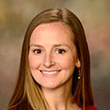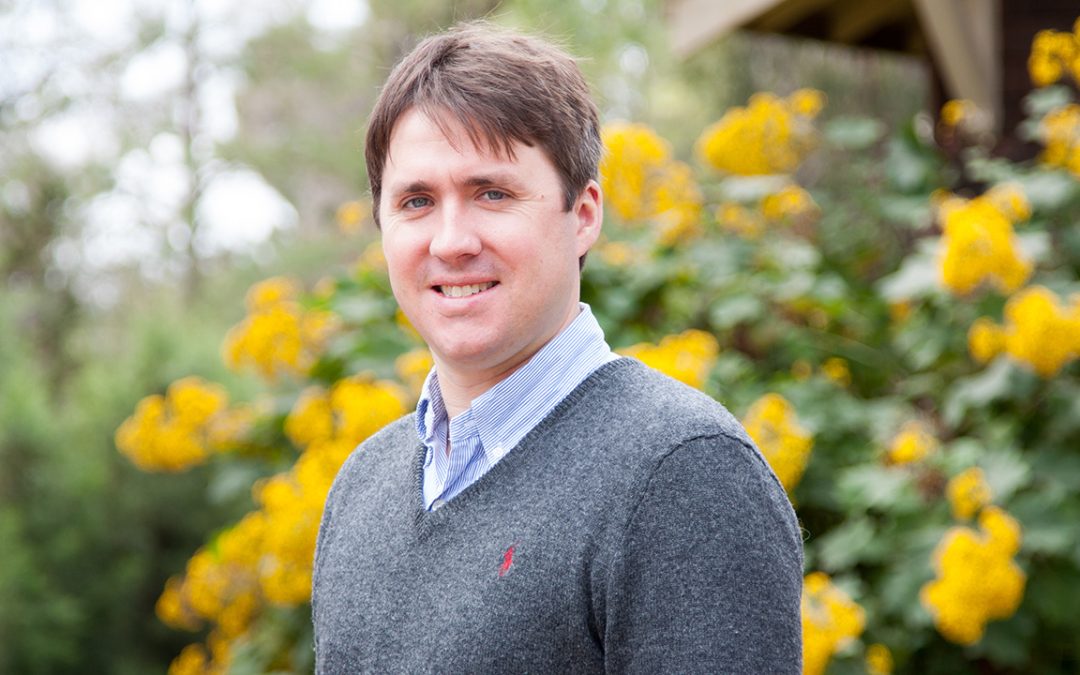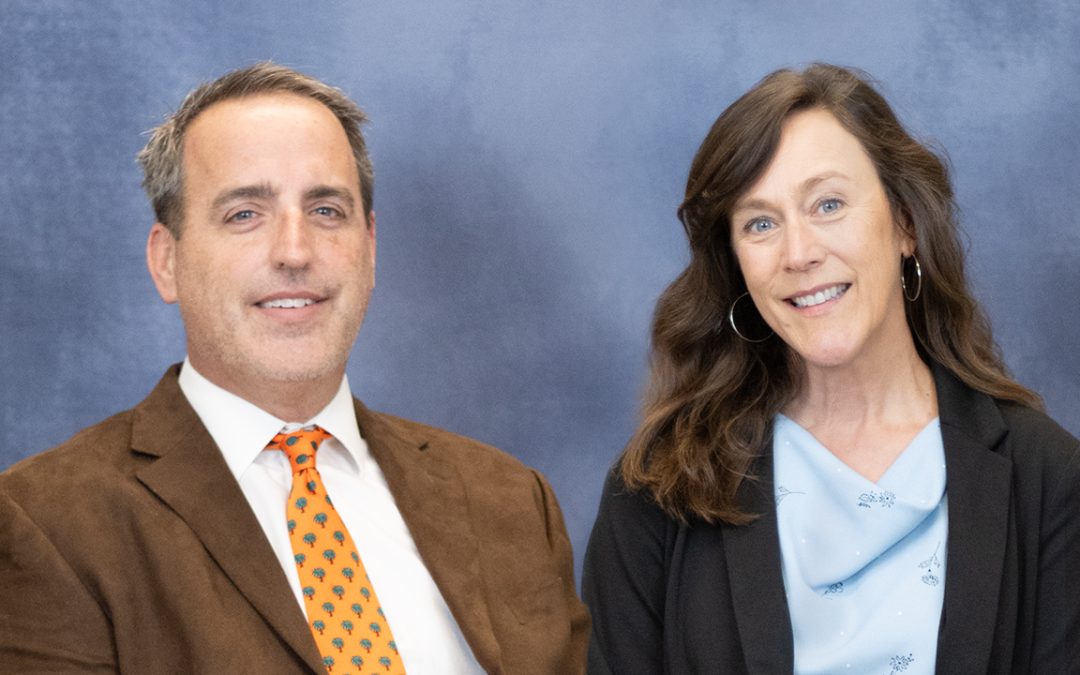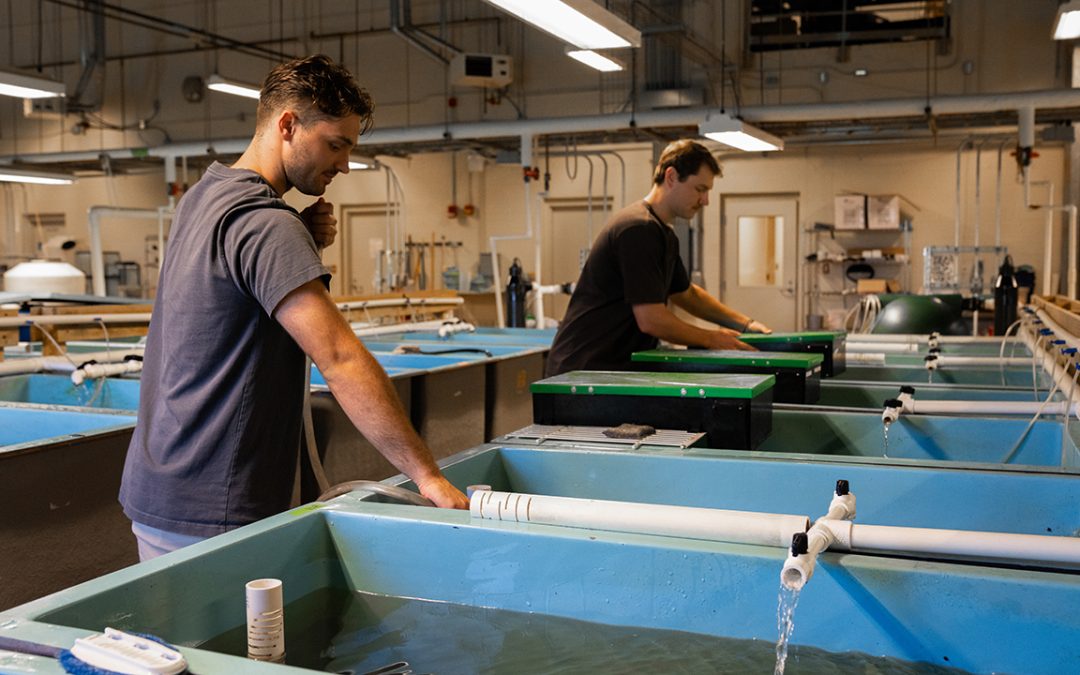Bringing positive change keeps Auburn’s Boyd going and going
by JAMIE CREAMER
video by NATHAN KELLY

Auburn fisheries professor Claude Boyd is recognized around the globe as one of the foremost authorities on the management of water quality in aquaculture operations.
Auburn University professor Claude Boyd is retiring.
Eventually.
Just as soon as his final graduate student—the last of more than 115 master’s and doctoral students he has directed in his 43 years as a faculty member in the School of Fisheries, Aquaculture and Aquatic Sciences—has Ph.D. in hand.
That probably won’t be until 2017, though, and by then, Boyd will be pushing 78. As in, years of age.
“I should have had the good sense to retire several years ago,” Boyd says in his thick-as-grits rural-Mississippi drawl. “But I was enjoying myself and reckon I just failed to realize that.”
Boyd is considered one of the world’s foremost authorities on managing water quality in aquaculture ponds, and rightly so: Through his four decades of research and teaching, he has helped feed communities worldwide, protect natural resources and improve local economies here and abroad. He’s also published 300-plus articles, coedited one book and written or co-written six others.
Practicality, simplicity and clarity all characterize Boyd’s words, both written and spoken, and one of his long-time colleagues and friends has held that those traits are at the heart of the global renown and respect that Boyd has acquired.
“Claude Boyd has the uncanny ability to distill complex science down to basic concepts, questions and answers that can be easily communicated and applied, despite the common barriers of language and technology,” John Jensen, interim fisheries, aquaculture and aquatic sciences director, has said.
Boyd’s 1979 book “Water Quality in Ponds for Aquaculture” is a prime example. That almost-500-page book has been revised and reprinted three times in English and also has been translated into Chinese, Indonesian, Spanish and Thai. One of those translations was actually published without his knowledge or consent. Some authors likely would have pursued legal action on that, but Boyd?
“Nah, I never cared much about getting credit or recognition for anything,” Boyd says. “I’ve always felt like if somebody can get something out of anything I’ve said or written, that’s what matters.”
Boyd insists that, in the past few years, he has begun slowing down, but there’s no evidence, scientific or otherwise, to substantiate that claim. Now a mere 75 years young, Boyd continues to teach undergraduate and graduate classes in water quality and water science, mentor master’s and Ph.D. students, visit and advise shrimp and fish producers around the globe, churn out highly informative publications and feed that eternal passion he has for scientific research.
Back in the early ’80s, Boyd traveled from Auburn to Suriname, a small country on the northeastern coast of South America, to help officials there select a site for a proposed fisheries research facility. That trip abroad was the start of something big, because in the years since, he has traveled to more than 40 countries time and again as a researcher, instructor, adviser or all of the above on issues of water quality and water supply in aquaculture. His primary focus internationally has been shrimp production; his constant mission, to help ensure that aquaculture worldwide operates in a successful, sustainable, environmentally sound way.
Those global efforts, however, have not come at the expense of his commitment to finding practical, cost-saving solutions to real-world problems facing the aquaculture industry in Alabama and the Southeast. One such solution was his development in the mid-1980s of an electric paddlewheel aerator that catfish and other aquaculture producers since have used to maintain adequate levels of dissolved oxygen in their ponds. According to USDA estimates, pond aerating equipment based on Boyd’s design had saved the U.S. catfish industry some $1.5 billion by 2010.
“That aerator’s probably been my most useful contribution to the industry,” Boyd says. “I reckon I should have gotten a patent on the thing. Auburn could’ve made a fortune on that.”
VIDEO: Hear Boyd explain the electric paddlewheel aerator, his most useful contribution to the aquaculture industry.




